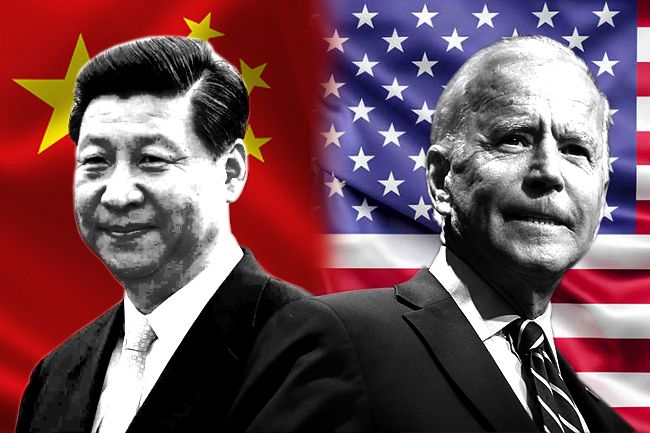The United States has highlighted that there’s a possibility of China exercising influence over the Nigerian government with the use of Chinese loans.
The statement can be traced back to the ‘Integrated Country Strategies’ document from the US Department of State, which was obtained by Africa Today News, New York.
Although initially approved on April 6, 2022, the document underwent a subsequent review and update, which took place on June 23, 2023.
As per the document’s contents, China provided sub-prime financing for various infrastructure projects taking place within the country.
The Corporate Finance Institute defines a subprime loan as a loan offered to individuals who don’t meet the criteria for conventional loans, carrying an interest rate above the prime rate.
The document read in part, ‘Meanwhile, China offers sub-prime financing for a range of infrastructure projects, with the potential to add unnecessarily to Nigeria’s debt burden and increase Chinese influence over the Nigerian government.’
Findings from Africa Today News, New York, indicate that Nigeria’s outstanding debt to the Exim Bank of China amounted to $4.34 billion as of March 2023.
The United States-based Fitch Solutions’ most recent report on Nigeria’s railway system reveals that a Chinese company, the Chinese Civil Engineering Construction Corporation, was responsible for the majority of railway projects in Nigeria, which collectively summed up to over $25.51 billion (approximately N10.5 trillion) as of January 2022.
Read also: China Moves To Forgive Loans To 17 African Countries
The report, titled ‘Nigeria Rail: Near-term focus on Northern region with long-term upside for Southern projects’, said Chinese financing had enabled CCECC to handle most rail projects in the country.
However, the report included a list of other companies that held prominent roles in Nigeria’s railway sector.
the report partly reads: ‘China Civil Engineering Construction Corporation has dominated the railway construction sector in Nigeria, supported by Chinese financing.’
A detailed breakdown of the leading rail projects managed by CCECC revealed that the approved Lagos-Calabar coastal railway project, which spans 1,402 km, was awarded to the Chinese company for a total of $11.10 billion.
Furthermore, the Abuja-Itakpe-Warri rail line project, with a contract worth $3.90 billion, backed by China Railway Construction Corporation and EXIM Bank of China, was entrusted to CCECC, in collaboration with Julius Berger and Sinohydro Corporation, both Chinese entities, along with General Electric. The project is currently in the planning stage.
Seeking to finance a series of infrastructural ventures, the Federal Government had initiated discussions with Chinese lenders, aiming to secure loan facilities for the realization of key projects, among them standard gauge rail lines.
In a document titled, ‘Status of Chinese loans as at September 30, 2021’, the DMO disclosed that 15 projects were funded with Chinese loans. Four of the 15 projects were rail-related.
The Integrated Country Strategies document from the US also criticized the political and economic system in the country.
The document read, ‘Nigeria’s fundamental problem is patronage-based political and economic decision making, with little to no coordination between relevant ministries, and a disempowered civil service that does not sufficiently advise the Federal Government or sustain policy objectives over multiple administrations.’
‘Political and economic elites lobby for policy decisions that favour their short-term personal interests rather than the longer-term stability and unity of the state.’
